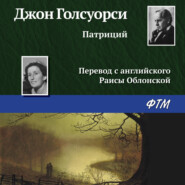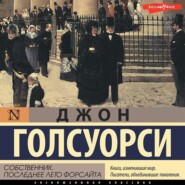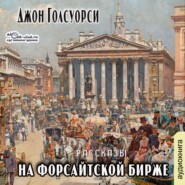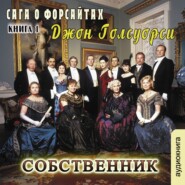По всем вопросам обращайтесь на: info@litportal.ru
(©) 2003-2024.
✖
Studies and Essays: Concerning Letters
Настройки чтения
Размер шрифта
Высота строк
Поля
And amidst the sighing of the Watch, it was so resolved.
Cethru was glad to shuffle away, unnoticed, from the Court, and sitting down under a camel-date tree outside the City Wall, he thus reflected:
"They were rough with me! I done nothin', so far's I can see!"
And a long time he sat there with the bunches of the camel-dates above him, golden as the sunlight. Then, as the scent of the lyric-flowers, released by evening, warned him of the night dropping like a flight of dark birds on the plain, he rose stiffly, and made his way as usual toward the Vita Publica.
He had traversed but little of that black thoroughfare, holding his lanthorn at the level of his breast, when the sound of a splash and cries for help smote his long, thin ears. Remembering how the Captain of the Watch had admonished him, he stopped and peered about, but owing to his proximity to the light of his own lanthorn he saw nothing. Presently he heard another splash and the sound of blowings and of puffings, but still unable to see clearly whence they came, he was forced in bewilderment to resume his march. But he had no sooner entered the next bend of that obscure and winding avenue than the most lamentable, lusty cries assailed him. Again he stood still, blinded by his own light. Somewhere at hand a citizen was being beaten, for vague, quick-moving forms emerged into the radiance of his lanthorn out of the deep violet of the night air. The cries swelled, and died away, and swelled; and the mazed Cethru moved forward on his way. But very near the end of his first traversage, the sound of a long, deep sighing, as of a fat man in spiritual pain, once more arrested him.
"Drat me!" he thought, "this time I will see what 'tis," and he spun round and round, holding his lanthorn now high, now low, and to both sides. "The devil an' all's in it to-night," he murmured to himself; "there's some'at here fetchin' of its breath awful loud." But for his life he could see nothing, only that the higher he held his lanthorn the more painful grew the sound of the fat but spiritual sighing. And desperately, he at last resumed his progress.
On the morrow, while he still slept stretched on his straw pallet, there came to him a member of the Watch.
"Old man, you are wanted at the Court House; rouse up, and bring your lanthorn."
Stiffly Cethru rose.
"What be they wantin' me fur now, mester?"
"Ah!" replied the Watchman, "they are about to see if they can't put an end to your goings-on."
Cethru shivered, and was silent.
Now when they reached the Court House it was patent that a great affair was forward; for the Judges were in their robes, and a crowd of advocates, burgesses, and common folk thronged the careen, lofty hall of justice.
When Cethru saw that all eyes were turned on him, he shivered still more violently, fixing his fascinated gaze on the three Judges in their emerald robes.
"This then is the prisoner," said the oldest of the Judges; "proceed with the indictment!"
A little advocate in snuff-coloured clothes rose on little legs, and commenced to read:
"Forasmuch as on the seventeenth night of August fifteen hundred years since the Messiah's death, one Celestine, a maiden of this city, fell into a cesspool in the Vita Publica, and while being quietly drowned, was espied of the burgess Pardonix by the light of a lanthorn held by the old man Cethru; and, forasmuch as, plunging in, the said Pardonix rescued her, not without grave risk of life and the ruin, of his clothes, and to-day lies ill of fever; and forasmuch as the old man Cethru was the cause of these misfortunes to the burgess Pardonix, by reason of his wandering lanthorn's showing the drowning maiden, the Watch do hereby indict, accuse, and otherwise place charge upon this Cethru of 'Vagabondage without serious occupation.'
"And, forasmuch as on this same night the Watchman Filepo, made aware, by the light of this said Cethru's lanthorn, of three sturdy footpads, went to arrest them, and was set on by the rogues and well-nigh slain, the Watch do hereby indict, accuse, and otherwise charge upon Cethru complicity in this assault, by reasons, namely, first, that he discovered the footpads to the Watchman and the Watchman to the footpads by the light of his lanthorn; and, second, that, having thus discovered them, he stood idly by and gave no assistance to the law.
"And, forasmuch as on this same night the wealthy burgess Pranzo, who, having prepared a banquet, was standing in his doorway awaiting the arrival of his guests, did see, by the light of the said Cethru's lanthorn, a beggar woman and her children grovelling in the gutter for garbage, whereby his appetite was lost completely; and, forasmuch as he, Pranzo, has lodged a complaint against the Constitution for permitting women and children to go starved, the Watch do hereby indict, accuse, and otherwise make charge on Cethru of rebellion and of anarchy, in that wilfully he doth disturb good citizens by showing to them without provocation disagreeable sights, and doth moreover endanger the laws by causing persons to desire to change them.
"These be the charges, reverend Judges, so please you!"
And having thus spoken, the little advocate resumed his seat.
Then said the oldest of the Judges:
"Cethru, you have heard; what answer do you make?"
But no word, only the chattering of teeth, came from Cethru.
"Have you no defence?" said the Judge: "these are grave accusations!"
Then Cethru spoke:
"So please your Highnesses," he said, "can I help what my lanthorn sees?"
And having spoken these words, to all further questions he remained more silent than a headless man.
The Judges took counsel of each other, and the oldest of them thus addressed himself to Cethru:
"If you have no defence, old man, and there is no one will say a word for you, we can but proceed to judgment."
Then in the main aisle of the Court there rose a youthful advocate.
"Most reverend Judges," he said in a mellifluous voice, clearer than the fluting of a bell-bird, "it is useless to look for words from this old man, for it is manifest that he himself is nothing, and that his lanthorn is alone concerned in this affair. But, reverend Judges, bethink you well: Would you have a lanthorn ply a trade or be concerned with a profession, or do aught indeed but pervade the streets at night, shedding its light, which, if you will, is vagabondage? And, Sirs, upon the second count of this indictment: Would you have a lanthorn dive into cesspools to rescue maidens? Would you have a lanthorn to beat footpads? Or, indeed, to be any sort of partisan either of the Law or of them that break the Law? Sure, Sirs, I think not. And as to this third charge of fostering anarchy let me but describe the trick of this lanthorn's flame. It is distilled, most reverend Judges, of oil and wick, together with that sweet secret heat of whose birth no words of mine can tell. And when, Sirs, this pale flame has sprung into the air swaying to every wind, it brings vision to the human eye. And, if it be charged on this old man Cethru that he and his lanthorn by reason of their showing not only the good but the evil bring no pleasure into the world, I ask, Sirs, what in the world is so dear as this power to see whether it be the beautiful or the foul that is disclosed? Need I, indeed, tell you of the way this flame spreads its feelers, and delicately darts and hovers in the darkness, conjuring things from nothing? This mechanical summoning, Sirs, of visions out of blackness is benign, by no means of malevolent intent; no more than if a man, passing two donkeys in the road, one lean and the other fat, could justly be arraigned for malignancy because they were not both fat. This, reverend Judges, is the essence of the matter concerning the rich burgess, Pranzo, who, on account of the sight he saw by Cethru's lanthorn, has lost the equilibrium of his stomach. For, Sirs, the lanthorn did but show that which was there, both fair and foul, no more, no less; and though it is indeed true that Pranzo is upset, it was not because the lanthorn maliciously produced distorted images, but merely caused to be seen, in due proportions, things which Pranzo had not seen before. And surely, reverend Judges, being just men, you would not have this lanthorn turn its light away from what is ragged and ugly because there are also fair things on which its light may fall; how, indeed, being a lanthorn, could it, if it would? And I would have you note this, Sirs, that by this impartial discovery of the proportions of one thing to another, this lanthorn must indeed perpetually seem to cloud and sadden those things which are fair, because of the deep instincts of harmony and justice planted in the human breast. However unfair and cruel, then, this lanthorn may seem to those who, deficient in these instincts, desire all their lives to see naught but what is pleasant, lest they, like Pranzo, should lose their appetites – it is not consonant with equity that this lanthorn should, even if it could, be prevented from thus mechanically buffeting the holiday cheek of life. I would think, Sirs, that you should rather blame the queazy state of Pranzo's stomach. The old man has said that he cannot help what his lanthorn sees. This is a just saying. But if, reverend Judges, you deem this equipoised, indifferent lanthorn to be indeed blameworthy for having shown in the same moment, side by side, the skull and the fair face, the burdock and the tiger-lily, the butterfly and toad, then, most reverend Judges, punish it, but do not punish this old man, for he himself is but a flume of smoke, thistle down dispersed – nothing!"
So saying, the young advocate ceased.
Again the three Judges took counsel of each other, and after much talk had passed between them, the oldest spoke:
"What this young advocate has said seems to us to be the truth. We cannot punish a lanthorn. Let the old man go!"
And Cethru went out into the sunshine..
Now it came to pass that the Prince of Felicitas, returning from his journey, rode once more on his amber-coloured steed down the Vita Publica.
The night was dark as a rook's wing, but far away down the street burned a little light, like a red star truant from heaven. The Prince riding by descried it for a lanthorn, with an old man sleeping beside it.
"How is this, Friend?" said the Prince. "You are not walking as I bade you, carrying your lanthorn."
But Cethru neither moved nor answered:
"Lift him up!" said the Prince.
They lifted up his head and held the lanthorn to his closed eyes. So lean was that brown face that the beams from the lanthorn would not rest on it, but slipped past on either side into the night. His eyes did not open. He was dead.
And the Prince touched him, saying: "Farewell, old man! The lanthorn is still alight. Go, fetch me another one, and let him carry it!" 1909.
SOME PLATITUDES CONCERNING DRAMA
A drama must be shaped so as to have a spire of meaning. Every grouping of life and character has its inherent moral; and the business of the dramatist is so to pose the group as to bring that moral poignantly to the light of day. Such is the moral that exhales from plays like 'Lear', 'Hamlet', and 'Macbeth'. But such is not the moral to be found in the great bulk of contemporary Drama. The moral of the average play is now, and probably has always been, the triumph at all costs of a supposed immediate ethical good over a supposed immediate ethical evil.
The vice of drawing these distorted morals has permeated the Drama to its spine; discoloured its art, humanity, and significance; infected its creators, actors, audience, critics; too often turned it from a picture into a caricature. A Drama which lives under the shadow of the distorted moral forgets how to be free, fair, and fine – forgets so completely that it often prides itself on having forgotten.
Now, in writing plays, there are, in this matter of the moral, three courses open to the serious dramatist. The first is: To definitely set before the public that which it wishes to have set before it, the views and codes of life by which the public lives and in which it believes. This way is the most common, successful, and popular. It makes the dramatist's position sure, and not too obviously authoritative.
The second course is: To definitely set before the public those views and codes of life by which the dramatist himself lives, those theories in which he himself believes, the more effectively if they are the opposite of what the public wishes to have placed before it, presenting them so that the audience may swallow them like powder in a spoonful of jam.
There is a third course: To set before the public no cut-and-dried codes, but the phenomena of life and character, selected and combined, but not distorted, by the dramatist's outlook, set down without fear, favour, or prejudice, leaving the public to draw such poor moral as nature may afford. This third method requires a certain detachment; it requires a sympathy with, a love of, and a curiosity as to, things for their own sake; it requires a far view, together with patient industry, for no immediately practical result.
It was once said of Shakespeare that he had never done any good to any one, and never would. This, unfortunately, could not, in the sense in which the word "good" was then meant, be said of most modern dramatists. In truth, the good that Shakespeare did to humanity was of a remote, and, shall we say, eternal nature; something of the good that men get from having the sky and the sea to look at. And this partly because he was, in his greater plays at all events, free from the habit of drawing a distorted moral. Now, the playwright who supplies to the public the facts of life distorted by the moral which it expects, does so that he may do the public what he considers an immediate good, by fortifying its prejudices; and the dramatist who supplies to the public facts distorted by his own advanced morality, does so because he considers that he will at once benefit the public by substituting for its worn-out ethics, his own. In both cases the advantage the dramatist hopes to confer on the public is immediate and practical.

















